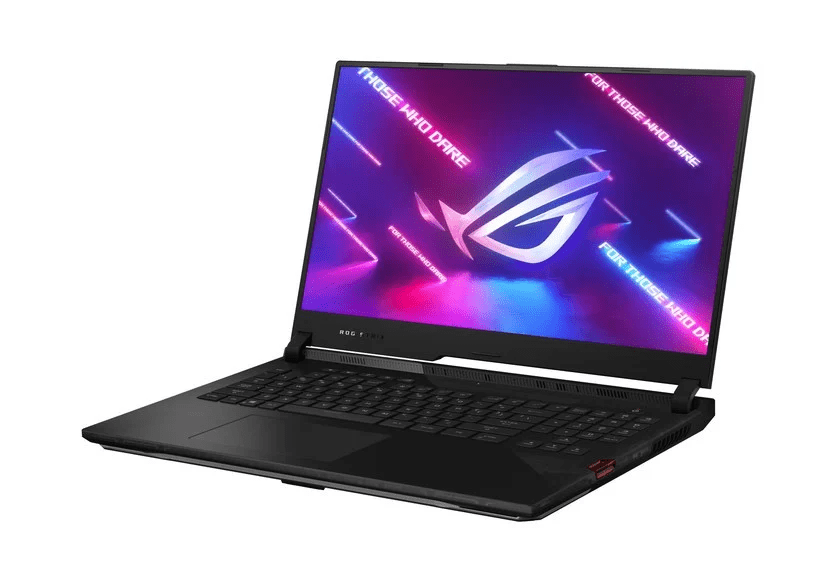
Image Source: Windows Central
POWER! UNLIMITED POWER!
In the gaming world, speed is everything. Well, that and RGB, for some reason. And speaking of speed and RGB, well, Asus’ ROG Strix Scar 17 isn’t hiding the fact that it’s made for gaming, unlike some of its competitors.
Aimed at the eSports market, the Strix Scar 17 has some serious power under the hood, especially for form factor. But of special note is the display: it comes in 15.6- and 17.3-inch models. The 17-inch model comes with a 1,920×1,080-pixel IPS-level panel with a 360Hz refresh rate, 3-millisecond response time and 100% sRGB color gamut coverage; Asus states that it’s the fastest display on any laptop, period. Of course, there’s a higher-res diplay also available; a 2,560×1,440-pixel panel with up to 165Hz refresh rate, 3-millisecond response time and 100% DCI-P3 color gamut coverage. Coincidentally, that display is also available on the 15-inch, in addition to a 1080p 300Hz option.
As for your configurations, you have some options:
- Processor: AMD Ryzen 7 5800H or AMD Ryzen 9 5900HX
- Graphics: NVIDIA RTX 3070 or NVIDIA RTX 3080
- RAM: Up to 64GB DDR4-3200MHz Dual-channel
- Storage: Up to 2TB M.2 PCIe NVMe SSD RAID 0, dual SSDs
Aside from being lighter and sleeker than last year’s Strix Scar models, Asus states that they took notes from athletic apparel. In addition to RGB lighting effects, it also had a slash in the lid with a dot matrix design (which also carries over to the keyboard deck). The board is optical-mechanical, featuring a 0.2ms response time and 1.9mm travel, and per-key RGB.
They skimped not on the bells and whistles, either. While the 17 has room for a full number pad, the 15 has Asus’ NumberPad touchpad; with the press of the Num Lock key, the touchpad becomes a LED backlit number pad, then its gone with a second press of the key. Both the 15 and 17 also include ROG’s Keystone II technology; by inserting a key into a notch on the right side of the keyboard, you can cause the laptop to initiate certain tasks, like launch games, switch performance modes, or access hidden partitions.
Naturally, with all that power, cooling is a concern. Asus used liquid metal on the CPUs, with an extended heat spreader with up to six pipes. in addition to increased airflow, they used new 84-blade fans to push air through the 4 rear-mounted air vents. they even improved how the system removes dust from the fans and heatsinks.
Basically, the whole thing slaps. And if you’re in the market for a gaming laptop, and you have the dough, you’d be hard pressed to do better. At least, that’s assuming that they’ll be priced somewhat similarly to their predecessors; Asus hasn’t announced pricing for the new models just yet.
Source: CNET
